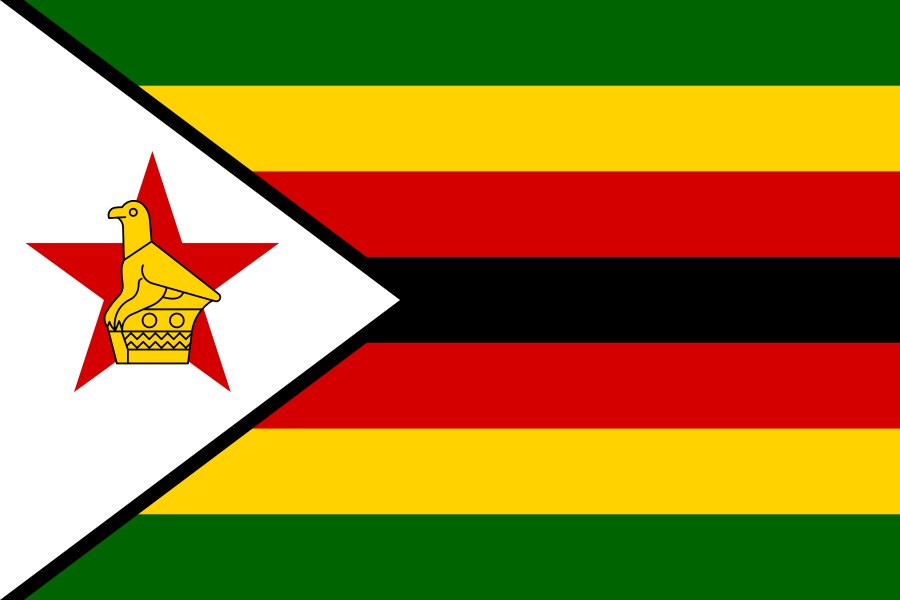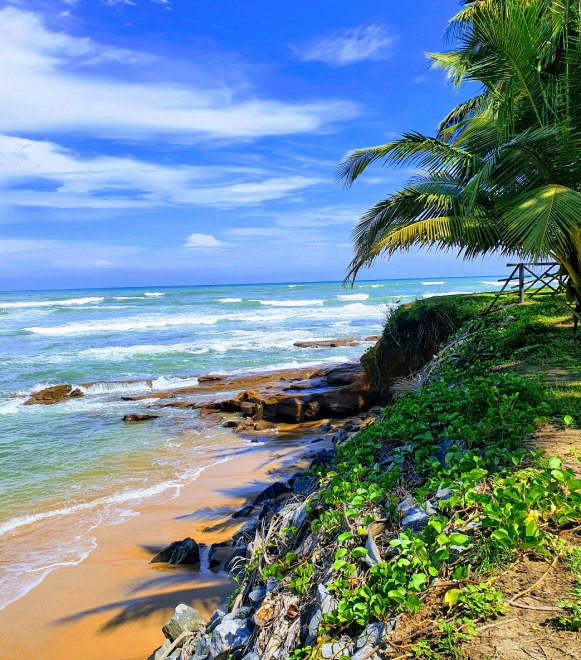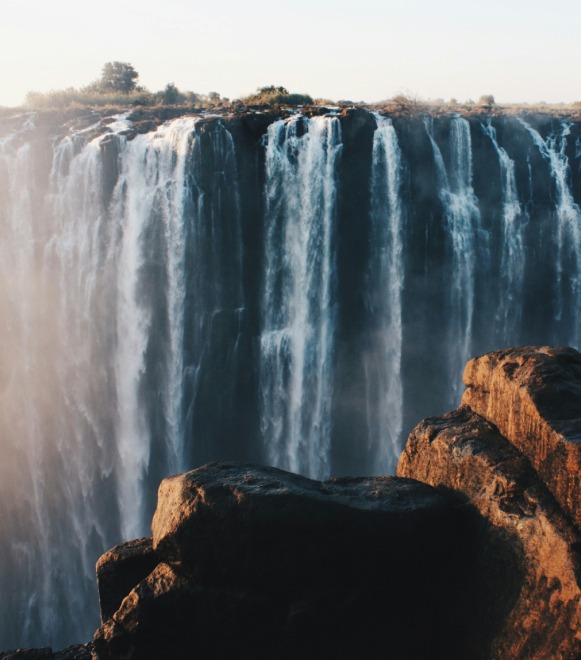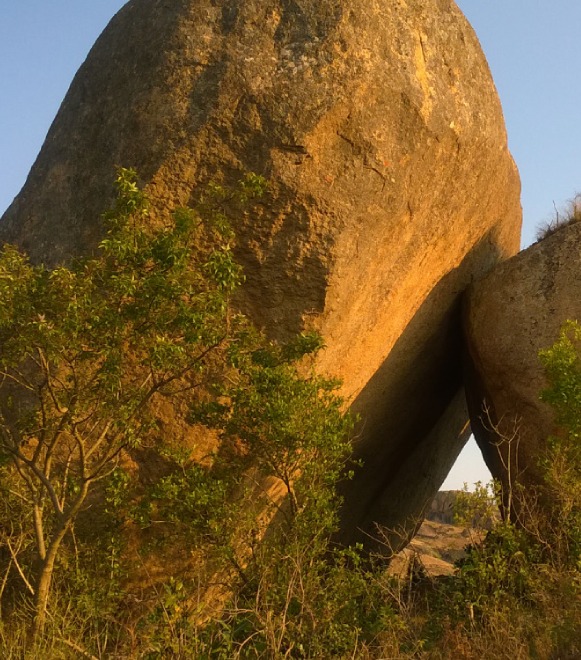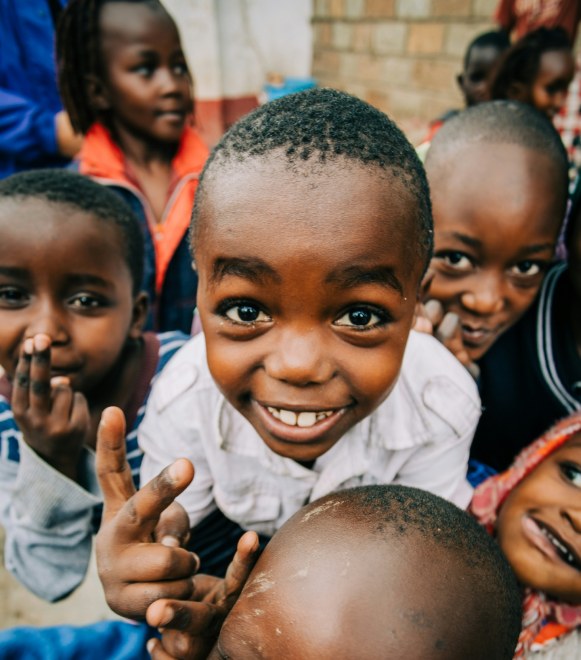Zimbabwe
Zimbabwe is an under-explored, but richly endowed landlocked country. Little is known about its diverse and rich culture, its liberation struggle and its critical role in the independence movement of the entire Southern African region, its pre-colonial history, post-colonial developments and current social and economic innovations. The country gained its independence in 1980, after having been a colony of Great Britain since 1890. The colonial past has left an indelible mark on the heart and memory of the country. As a result, English is the most widely spoken language of the country’s 16 official languages. However, the national liberation struggle became the cornerstone in the rebuilding process.
Names of liberation struggle leaders, such as Robert Mugabe, Simon Muzenda, Josiah Tongogara, Jason Moyo, etc. are used as street names, government buildings, schools, hospitals and the airport in independent Zimbabwe. A survey of street names in major cities in Zimbabwe tells a story of the liberation struggle; that it was achieved with the help of many regional countries hence names like Kwame Nkruma of Ghana, Julius Nyerere of Tanzania, Samora Machel of Mozambique, and Keneth Kaunda of Zambia are common. The naming of the streets after Africa’ great liberators continued even after independence. It is a chronicle of the history of the African struggle. When Namibia became independent, its first president, Sam Nudjoma, was given a street, as was South Africa’s Nelson Mandela. The process of naming is a process of rebuilding the image of the country from colonialism. Names of colonial masters are replaced by African leaders. Colonial statues are neglected while new ones are erected. The statues of Mbuya Nehanda, Joshua Nkomo and others have been erected to celebrate their contribution to the struggle for independence.
Little is also known about the warmth of Zimbabwean people and the country’s rich and diverse landscape. Located in the heart of the Southern African region, Zimbabwe shares borders with South Africa, Mozambique, Botswana, Namibia and Zambia. The country has a population of 16 million (https://www.zimstat.co.zw/).
Visitors to Zimbabwe meet people and nature in constant conversation; rural and urban life in close competition. Conflict is often the order of the existence as each seeks dominance over the other. Mountains, forests, hills and valleys, vleis, rivers and streams adorn the face of Zimbabwe. Animals, both domestic and wild roam the various terrains. A visit to the rural areas leaves one with an indelible impression of true Zimbabwean hospitality. Life in the cities and towns, with their colonial segragationist imprint most visible in the separate racial settlements, testifies to a tug of war between the past, the present and the future. Low-density suburbs are for the rich and affluent, portraying Zimbabwe as prosperous, multi-racial, multicultural and cosmopolitan. High-density suburbs, on the other hand, are for the low-income earners and the unemployed who value being in the vicinity of city lights. They hope for a better future, which makes them attractive targets for prophets of prosperity and others who promise miraculous deliverance from poverty. On a bus from the city, the dialogue between socio-economic classes continues until it dies on arrival in rural villages.
Zimbabwe is the most literate country in Africa (https://allafrica.com/stories/202203020101.html). This is because the Government of Independent Zimbabwe has prioritised education as the key to development and reconstruction. Other public and private stakeholders have also contributed to the government’s efforts in this field. Since independence, the number of primary schools has increased from 2401 to 7081 and secondary schools have increased from 177 to 3066 by 2021. Of these, 1200 schools were constructed between 2017 and 2021. At independence, there was only one University; by 2023, Zimbabwe boasts of 18 Universities.
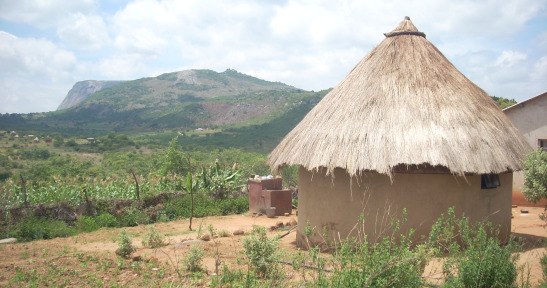
Zimbabwe‘s economy is agrarian. BEnefiting from a favourable climate, fertile soils, technology, and a public and private sector commitment to poverty eradication, Zimbabwe exports its agricultural produce to the world. At its peak, before the year 2000, agriculture contributed about 14 % of the national GDP, employed 70 % of the population and accounted for 45 % of the country’s exports (http://www.zimfa.gov.zw/index.php/about-us/zimbabwe-in-brief/agriculture). Efforts are underway by both the government and the private sector, to reestablish Zimbabwe’s agricultural dominance in the region. As of 2023, the responsible ministry plans to start exporting maize to neighbouring countries, following a successful season that recorded a bumper harvest. The success has been attributed to the adoption of a locally devised conservation agriculture model called Pfumvudza.
Tourism and minig complement agriculture in their contribution to GDP. Zimbabwe has plenty of tourist attractions such as rainforests, waterfalls, hot springs, mountain ranges, game parks, balancing rocks, caves etc. More information on Zimbabwe’s attractions can be found here: https://www.thrillophilia.com/destinations/zimbabwe/places-to-visit
Zimbabwe also has over 40 precious minerals in various stages of exploitation. More details can be found here: https://www.trade.gov/country-commercial-guides/zimbabwe-mining-and-minerals Zimbabwe also boasts of a wide variety of fauna and flora as it is home to 350 species of mammals, more than 500 species of birds, and 131 species of fish (https://www.awf.org/country/zimbabwe).
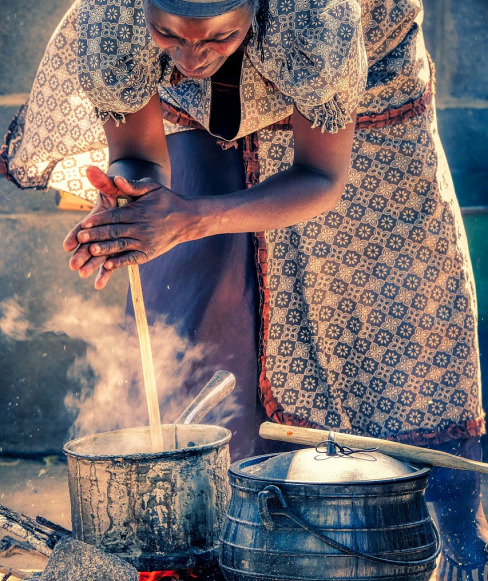
Why travel to Zimbabwe with Farafina Travels?
After landing at Robert Mugabe International Airport in Harare, most ‚mainstream‘ tourists head for their hotels. At the hotel, they are served familiar cuisine. They interact with familiar faces, play familiar entertainment games, turn on familiar TV channels and read familiar magazines. The next day they are either on a plane or in a specially arranged vehicle with tour guides to a tourist resort of their choice. Hopping from one resort to another for a week or two, then soon they find themselves back in their hotel room, back at the airport and off they go. Most of what they know is familiar. They have either seen it on television or on the internet or had read about it in international newspapers and magazines before they came.
Farafina takes you to places you have never read about, places you have never seen on television. Farafina takes you to ordinary people. The lives of ordinary Zimbabweans are far from what the tourists see in hotels, tourist resorts and from one airport to another. The majority of Zimbabweans live in the rural areas (70 %). Their daily life experiences are not documented in newspapers or broadcasted on international television. Their lives are unfamiliar territory for visitors.
If you want to experience the essence of Zimbabwe, you should dare to visit such unfamiliar territories. Dare to leave your comfort zone and immerse yourself in environments where there is no electricity, no solar lights, no running water, and where you will sleep in round thatched huts. Travel to places where there are no paved roads, no cars, no buses, or boats, and where children walk up to 10 km to get to their school. If you try to get at least a glimpse of the living conditions in these areas, you will be rewarded with the amazing hospitality of village people.
Travelling with Farafina Travels gives you the opportunity to participate in the day to day experiences of the people of Zimbabwe. The rural areas are the ideal place for this. In the villages, people herd cattle, donkeys, goats and sheep; they plough, weed and harvest crops; they fetch water from rivers, wash clothes in the streams, water gardens with buckets. Ordinary Zimbabweans in rural areas walk long distances barefoot; in winter children walk to school barefoot and without warm clothes.
In the rural areas of Zimbabwe you will witness for yourself the power of kinship systems in ceremonies (marriage, funeral and other ritual ceremonies). You will witness the traditional justice of the people at work in local courts. Rural areas are the custodians of Zimbabwe’s vastly diverse cultures. Farafina Travels enables you to appreciate the real culture of the people of Zimbabwe in their context.
Partner organisation
Partnership for Development Initiative (PDI)
PDI is a grassroots organisation in Zimbabwe that works by empowering local communities to realise their development aspirations. Working through partnerships, PDI strongly believes in the power of connection to transform the lives of the marginalised communities. PDI has collaborated with the Farafina Institute on research and youth exchange visits. Since 2018, PDI has been organising international youth exchange visits and workshops in Zimbabwe and co-organising international youth exchange visits in Germany in collaboration with Farafina Institute.
Good to know
Climate
The hot/rainy season lasts from mid-October to March. The cold /winter season lasts from May to July. However, due to climate change, the seasons are no longer predictable.
Other things to consider carrying: Sunscreen, sunglasses, sun hat, medicines for minor ailments.
Politics
Zimbabwe’s political space is dominated by the ruling party and various opposition parties. The ruling party has been in power since 1980. Most of the opposition parties that are vying for power were formed in 2000 at the latest. The political space in Zimbabwe is too contentious and somewhat toxic.
Visitors are advised not to participate in public political debates, gatherings or any activity that could be construed as political.
Dress
The dress codes will vary depending on the area you are in. In urban areas there are generally no strict dress codes, and this is generally the case throughout the country. However, in cities, women are more likely to wear trousers, short skirts and wear shorts and sleeveless tops more often than in rural areas. But in most cases, in rural areas, in villages, women tend to wear dresses and long skirts more often than trousers. Men generally wear long trousers.


Food
There are many restuarants in urban centres. Some specialise in national cuisine (Italian, German, Portuguese, Spanish etc). Most restaurants specialise in local Zimbabwean dishes – sadza (corn/maize porridge) and either chicken, goat, beef or vegetables. Prices depend on the location. In upmarket places lunch will cost between US$10 to US$30. However, in areas of high population density, prices start at 1 USD. In Zimbabwe, people generally do not frequent restaurants. This is largely due to financial constraints. They therefore eat at home. For a normal family, a meal consists of starch (sadza, rice or potatoes) and a side dish, usually chicken, beef or pork.
Culture
Zimbabwe is an open, multiracial and multicultural society, but it is predominantly Christian. Christianity exists in several forms.
- First, mainstream or missionary Christianity (Roman Catholic Church, Anglican, Methodist Church in Zimbabwe, United Methodist Church, Salvation Army, Reformed Church in Zimbabwe, etc).
- Second, African Initiated Christianity commonly known as the ‚White Garment‘ churches, although, most have different colours as their uniforms.
- Third, the most dominent form of Christitianity since about 2000 has been the charismatic churches.
There is also a resilient and competing African indigenous religion in all societies. In the past, African indigenous religion practitioners (healers and exorcists) were more prevalent in rural areas more than in cities. More recently, they have entered urban areas with the same determination as charismatic Christian preachers. Indigenous religion is common to most cultural groups in Zimbabwe – Shona, Ndau, Korekore, Shangani, Tonga and Ndebele.


Electricity/Energy
Until around June 2023, Zimbabwe had constant electricity and energy problems. Urban life was characterised by long and unscheduled power cuts. Although the situation has not yet turned to normal, there hase been a marked improvement in the availability of electricity.
The situation is different in the rural areas. Almost all rural areas are not electrified. They rely on solar panels to charge mobile phones and to use lights. When these are not available, people use candles and lamps.
For people travelling to the rural areas, it is advisable to be equipped with a power bank, small solar devices and a torch.
Transportation
Depending on the destination and location, there are three main modes of transport in Zimbabwe: air, road and rail. However, road transport is the most common. Inter-city travel is easy as there are buses that ply the routes. This has been made necessary by emergency road rehabilitation programmes since 2019. The main roads have been repaired.
At present, you would be lucky to find a train from one city to another. However, there are plans to revive the railway system. Until about 2004, the railway was the most reliable and cheapest way to travel from city to city.
Transport challenges are most pronounced in high-density suburbs and in villages/rural areas. Many roads in rural areas are so bad that travelers need off-road vehicles. Roads are riddled with potholes and rarely tarred. In fact, the best way to travel from one place to another is by car. Avoid driving around 8 am, lunchtime and around 4 pm. The roads are chaotic and congested at these times.

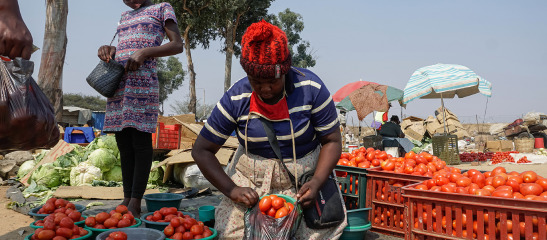
Shopping
Shopping in the cities is not difficult. There are huge supermarkets and shopping centres. There are also street vendors on every street corner. Vegetables and fruits in particular are often sold on the streets.
Grocery stores can be found in rural areas, but they are quite fas away. Travellers to rural areas are advised to buy most important items in town. Rural shops may lack some important items. However, rural areas have the freshest and cleanest (from chemicals) vegetables and fruit.
Meet the Cultural Consultant
Obvious Vengeyi is a professor in Biblical and Cultural Studies in the Department of Philosophy Religion and Ethics at the University of Zimbabwe and author of multiple academic papers. As a scholar of the Deutscher Akademischer Austauschdienst (DAAD) – German Academic Exchange Service, he completed his PhD at the University of Bayreuth, Germany, and has since been returning to Germany on multiple fellowships and academic occasions. He lives in Harare. He is married to Elizabeth and they have two children; a son, Anesu and a girl, Atipaishe. Since their return from Germany in 2012, they have hosted friends and visitors from other cultures and other countries; local and abroad. Obvious Vengeyi was also a guiding expert for Farafina Institute’s youth exchange program in Zimbabwe.
Meet the Guide
Simon Mukwaya has a Social Science background (a Masters in Public Policy and Governance and a Bachelors in Sociology). He works in the humanitarian and development sector. Simon Mukwaya is passionate about expanding development possibilities for the marginalized communities. He is easy going, humorous and loves to keep a positive energy to those around him.
Simon Mukwaya originates from Mutare, a city on the eastern border with Mozambique, which is home to the Manyika people. He has contributed to a number of Farafina-led programs in southern Africa and in Germany. As the director of FT’s partner organisation, PDI, he has been organising international youth exchange visits and workshops in Zimbabwe. Together with Prof. Obvious Vengeyi, he was instrumental in the most recent exchange visit in Zimbabwe in early 2023 in organising exchange activities and cultural visits.

